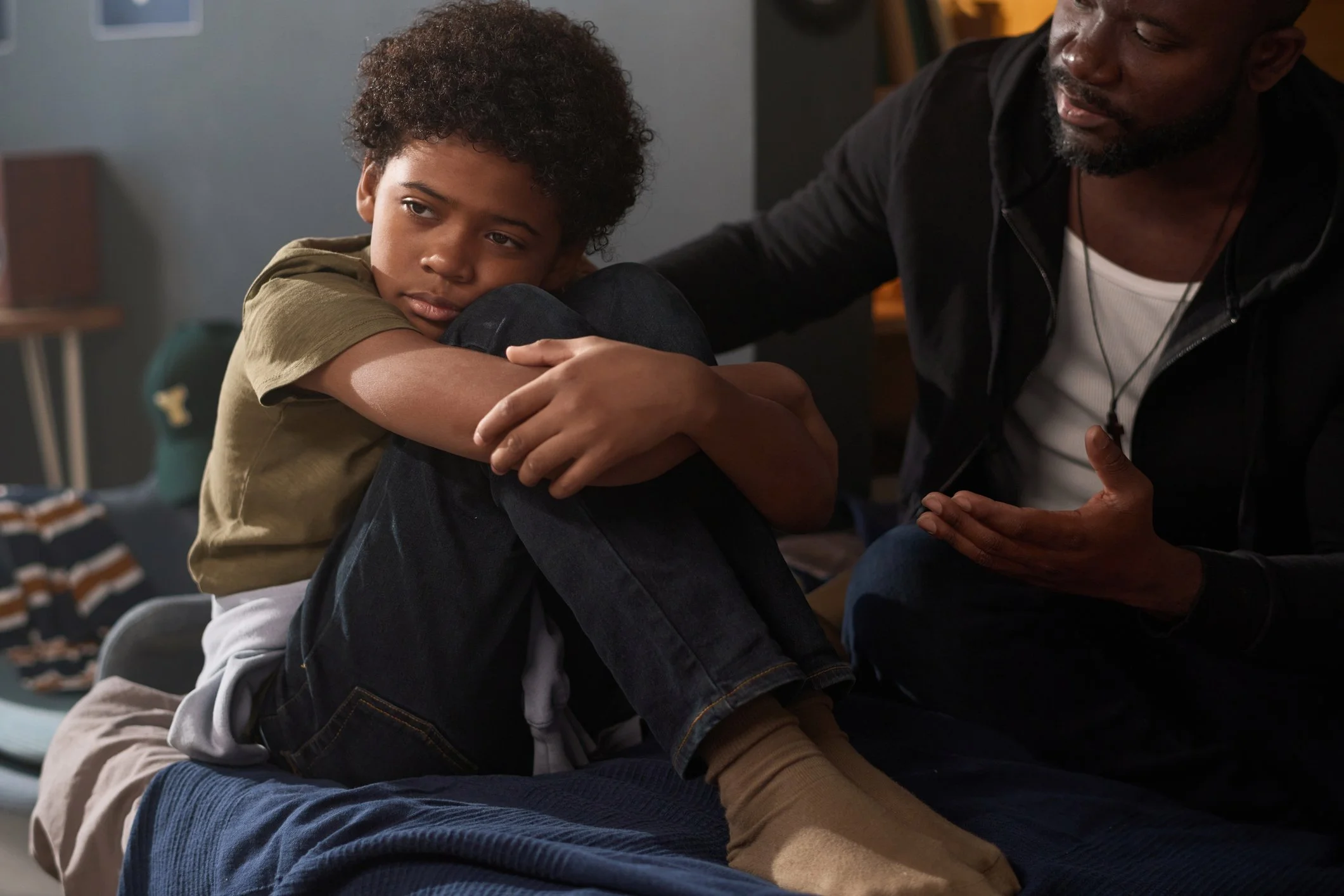
Alleviant Integrated Mental Health Blog
From Coping to Connection: What Kids Really Need Instead of Substances
Kids and teens often turn to substances as a way to cope with stress, anxiety, or feelings of isolation. While adults may see this behavior as rebellion or experimentation, the underlying need is usually something deeper: connection and support.
At Alleviant Integrated Mental Health, we focus on helping children, teens, and families meet these needs in healthy ways that reduce the risk of substance use.
Why Middle School Is a Critical Time
Between the ages of 11 and 14, children experience significant emotional, social, and cognitive development. This period is often when anxiety, depression, ADHD, and other mental health concerns first appear. Early identification can help prevent struggles from worsening and supports academic, social, and emotional growth.
Substance Use Prevention Starts With Mental Health
Red Ribbon Week is a time to raise awareness about substance use prevention and encourage healthy choices for all ages. While education about drugs and alcohol is important, one of the most effective ways to prevent substance misuse starts with mental health.
At Alleviant Integrated Mental Health, we know that emotional well-being, coping skills, and early support are key to reducing the risk of substance use.
ADHD in Girls and Women: What Gets Missed
For years, ADHD has been thought of as a condition that mostly affects boys. Because of this, countless girls and women have grown up without answers, often struggling silently with symptoms that don’t fit the “classic” picture of ADHD.
At Alleviant Integrated Mental Health, we believe it’s time to bring attention to how ADHD shows up differently in girls and women, and why it so often gets missed.
Family Check-Ins: Reflection Prompts for the Transition from Summer to Fall
The end of summer brings a natural shift in routines, schedules, and energy. School starts, days get shorter, and the weather changes. These transitions can affect everyone in the family, from children to adults, and can create opportunities for reflection, connection, and planning for the months ahead.
At Alleviant Integrated Mental Health, we know that family check-ins are a simple yet powerful way to support mental health during seasonal transitions. Reflection prompts help guide conversations that strengthen relationships, foster empathy, and create a supportive environment at home.
How Educators Can Model Mental Health Without Oversharing
As an educator, you play a huge role in shaping how students think about learning, relationships, and even themselves. What many people don’t realize is that you also shape how they view mental health.
Kids and teens are always watching. They notice how you handle stress. They pick up on your tone when something goes wrong. And when you speak honestly (without going too deep), they learn that it’s okay to talk about emotions and challenges.
How to Talk to Your Child About Mental Health
Talking about mental health with kids can feel tricky, even for the most loving and attentive parents. Maybe you’re not sure what to say. Maybe you don’t want to scare them or say the wrong thing. Or maybe you’re worried that bringing it up will make things worse.
But here’s the truth: your child doesn’t need perfect words. They need your presence. They need to know it’s okay to talk about feelings, especially the hard ones.
When mental health becomes something we talk about openly, it loses some of its power to scare or isolate. It becomes something we care for—together.
Teen Mental Health in August: Signs They’re Struggling And How to Help
August can feel like a pressure cooker for teens. The slower pace of summer is coming to an end, school is right around the corner, and for many young people, there’s a quiet (or not-so-quiet) sense of dread building beneath the surface.
Maybe your teen is feeling anxious about grades or friend groups. Maybe they’re dreading early mornings or dealing with body image stress as they head back into more social settings. Even if they don’t say much, you may notice changes in their mood or behavior this time of year.
School Year Stress in Children: Warning Signs Parents Miss
Not all struggles look the way you’d expect. Kids are incredibly resilient, but they also feel more than they often say. And during the school year, their emotional world can get a lot heavier.
There’s academic pressure, tricky social situations, bullying, schedule overload, and the struggle to stay organized in a busy environment. Many parents assume their child will speak up if something’s wrong. But often, school-related stress shows up in quiet, hard-to-read ways.
You know your child better than anyone. And still, it’s easy to miss the signs that they’re struggling.
Back-to-School Blues: Supporting Kids Through Seasonal Shifts
For many families, the end of summer brings a mix of emotions. Maybe your child is counting down the days until they see their friends again, or maybe they’re dragging their feet and dreading the first bell. Either way, it’s common for kids to feel a little off as summer winds down and school starts back up.
This seasonal shift can be a lot. Going from long, carefree days to early mornings, busy schedules, and new classroom routines is a big adjustment. Some kids handle it easily. Others feel anxious, irritable, or even sad and don’t know how to talk about it.
Teaching Kids to Breathe: Simple Emotional Regulation Tools for Children
When kids get upset or overwhelmed, it can be hard for them to calm down on their own. That’s where teaching emotional regulation becomes so important. One of the simplest and most effective tools for managing big feelings is something we all have with us all the time: our breath.
At Alleviant, we believe that helping kids learn how to use their breath to manage emotions can give them a skill they will carry for life. It’s a way to pause, feel grounded, and make choices instead of reacting in the moment.
Sleep, Screen Time, and Emotional Storms: Helping Your Family Get Back on Track
When family life feels out of sync, it often shows up in small but noticeable ways. Maybe your kids are crankier than usual, everyone’s glued to a screen, or no one is getting good sleep. As routines shift with the school year or summer break, these habits can slip, and they can take a toll on your family’s mental health.
At Alleviant, we understand how foundational sleep, screen time, and emotional balance are for the whole household. The good news? A few intentional changes can help get your family back on track.
When You're the Emotional Anchor: Supporting Your Kids Without Losing Yourself
Being a parent or caregiver means wearing a lot of hats. You’re the protector, the guide, the comforter, and often the emotional anchor. You’re the one your children turn to when they’re scared, overwhelmed, or unsure of the world. It’s a role filled with love, but it can also leave you feeling drained.
At Alleviant, we believe mental health care is for the whole family. That includes you, the one holding it all together. If you’ve ever felt like you’re supporting everyone else while struggling to stay afloat, this is for you.
Whole-Family Mental Health: How Caregiver Stress Affects Children
Mental health is something the whole family feels. When a parent or caregiver is stressed, it doesn’t just stay with them. It affects everyone in the home, especially children. At Alleviant, we know that caring for kids means caring for the entire family, including the emotional health of those who take care of them.
Caregiver stress can come from many places. It might be work, money worries, health problems, or just the everyday challenges of parenting. Feeling overwhelmed sometimes is normal. But when stress sticks around for a long time, it can impact not only your own health but also how your children feel and behave.
The Mental Load of Summer Parenting: How to Cope with Feeling Touched Out
Summer can be a beautiful season for families, filled with longer days, playtime, adventures, and memories in the making. But behind the scenes, many parents, especially moms and primary caregivers, are carrying an invisible weight: the mental load of summer parenting.















